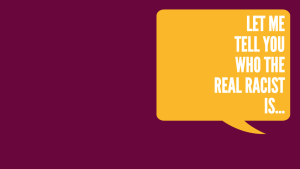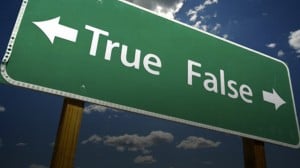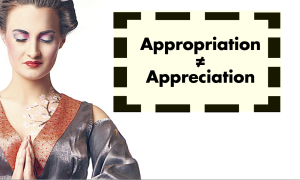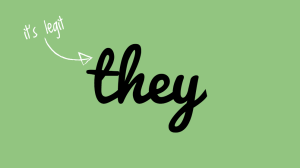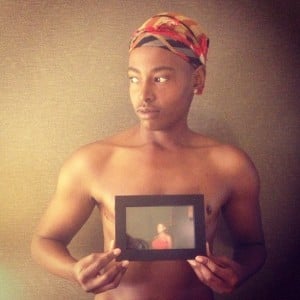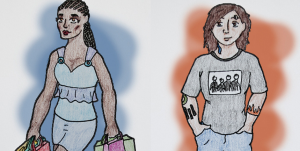Here at Everyday Feminism, we’ve covered a wide range of topics exploring the nuances of patriarchal oppression. But once in a while, it’s nice to step back from the complexities of feminist thought to help people better access, understand, and hopefully embrace feminism.
As two people working in feminist movements for justice, we get a lot of questions from cisgender men about what their place in feminism can and should be.
And considering that we find a lot of well-intentioned men are terribly confused about the basic tenets of feminist movements, we thought we’d take some time to answer a few of those questions.
Notably, though, we come to this analysis with very different places – a Black woman and a White man. Also, we think it’s important to note that we both are cisgender, and as such, our perspectives are limiting.
We worked hard to be inclusive of how feminism serves trans, non-binary, and gender non-conforming people, but we hope to demystify the feminist movement for cis men and make it easier to open up for a dialogue in your community about this and whatever we missed!
With that said, then, here’s our take on the questions we get so often from men.
1. What Is Feminism? And Can Men Be Feminists?
To understand whether or not men can be feminist, men really need to understand what feminism actually is.
But the tricky part is that feminism isn’t just one thing!
Depending on who you’re in community with, feminism can be totally and completely different.
Thus, it’s important to be clear what we’re talking about when we say “feminism.”
Though there are innumerable ways that people understand and express their feminism, we see the meaning of the term falling into two general concepts:
Option A: Feminism is a movement for and about women.
To some, feminists are women striving to better the lives of women. Feminism is a movement for gender equality socially, politically, and economically.
Each wave of feminism has expanded to include multiple groups of marginalized people in society, but its basis remains as a movement for and by women (including trans women).
Men can surely have a role in this understanding of feminism, but men’s relationship to feminism would be better understood as an ally/solidarity relationship built on accountable work.
Option B: Feminism is a movement about gender justice.
Patriarchy hurts everyone, even if it hurts women and non-binary people more and in profoundly different ways than cisgender men.
Feminism, then, is a movement to combat systemic and institutional oppression that disproportionately affects disenfranchised groups in our society with the main focus on women.
Thus, in this concept, feminism is a movement where people of all genders can be feminists if they’re willing to do the work to dismantle patriarchal oppression.
So where men fit in feminism depends a lot on who they’re in community with and how communities understand the role of feminism in working for justice!
2. Hold the Phone – What’s This Patriarchy Stuff You Keep Mentioning?
The term patriarchy generally is referring to systems and social norms that are, by in large, created by cisgender men for cisgender men and that, as a result, marginalize and oppress those who are not cis men (or those passing for cis men).
3. Okay, But Who Is Feminism For?
In some ways, it depends on who you ask.
To us, feminism is for everyone (so long as we’re all accountable to those marginalized people who ought to be in leadership).
There are different types of gender equality movements that also focus on intersections of race, ethnicity, and class, like womanism or Third World Feminism, but the current wave of feminism we participate in is seen as an intersectional and inclusive umbrella movement.
To some people, feminism is an inclusive, intersectional movement for social justice that centers marginalized and oppressed people in the work for freedom.
To others, it’s strictly aims to serve cisgender women, particularly focusing on the issues that affect White women.
To those people, feminism isn’t meant to be inclusive at all.
For example, TERFs consider themselves feminists, but that’s not exactly an inclusive and intersectional anti-oppressive feminism when it seeks to actively advance the oppression of our transgender and gender non-conforming family.
At Everyday Feminism, we work to inform the wider struggle for intersectional feminist justice, so our feminism centers women, trans folks, and non-binary people, particularly those most marginalized and oppressed in our society because of race, class, ability, religion, sexual identity, citizenship experience, or body size.
4. But Isn’t Feminism About Hating Men?
Simple answer: No.
Feminists don’t hate men. We hate male privilege and the systems that create and reinscribe it. “Not all men” are awful, but all men benefit from male privilege.
Feminism is about dismantling the systems in which people are oppressed for their gender identity, those same systems that privilege cisgender men.
Thus, men can play a role in dismantling those systems so long as they are following the leadership of those who don’t share their gender identity!
Notably, though, many men think feminists and feminism hates them because men are not centered or made to feel comfortable in their privilege.
We need to be clear not to conflate men not being the center of a movement with that movement marginalizing or hating men.
5. Can I, As a Man, Call Myself Feminist?
This is the sticky part.
It’s not a man’s place to label themselves as a feminist since at its core, feminism is for gaining equality for women. A woman you are close to can assign that label to you, but you have to earn it!
And you have to keep earning it.
It’s important to incorporate feminist practice in your daily life – earning the label of feminist isn’t even half of the work. It’s a challenge to unlearn harmful patriarchal ideas, and it’s work you must do routinely in order to be a strong ally within feminist spaces.
In feminist spaces, it’s best for men to take the backseat and actively listen to women’s concerns while thinking of productive ways to challenge their own privilege while lending support to the movement.
Regardless of what you choose to call yourself, though, what really matters is how you act. Are you acting in ways that are accountable to people across difference and that advance and support feminist liberation?
Then don’t worry too much about the label and just do the work.
6. As a Man, Why Would I Want to Be a Feminist or Hold Feminist Ideals?
Why not?
As a man, you also benefit from feminist ideals!
Feminism is about getting rid of oppressive forces that hold women down and also make men adhere to restrictive norms and ideals.
Patriarchy wants you to be dominating, assertive, hyper-masculine, athletic, emotionless, and the breadwinner of a heteronormative family. That’s a lot of pressure!
Feminism seeks to eradicate patriarchal norms like these that have men bound and women perceived as inferior.
Perhaps more importantly, though, the people in our lives who don’t share our identity are hurt to greater and varying degrees by patriarchal oppression.
That should be enough for us to want to strive for an intersectional feminist understanding of justice.
What brings many men to feminism in the first place is realizing how much our current society hurts those we love. And that empathetic concern should inform our own values!
7. Why Is There a Need for Women-Only Spaces? Isn’t Segregation Bad?
You know what’s bad? State-sanctioned segregation meant to reinforce the oppression of already marginalized people.
You know what’s awesome? Allowing for, encouraging, and protecting spaces for those who are marginalized in our wider society to meet in a space that offers reprieve from microaggressions and other enactments of oppression.
Thus, let’s stop using “segregation is bad” to break up protected spaces for women, people of Color, and other marginalized and oppressed people.
In our society, there are very few spaces where cisgender men aren’t welcomed, centered, and safe. That’s not true for people of other genders, so those spaces have to be created.
Women-only spaces (and remember, when we say “women,” we are absolutely including trans women) are necessary because women can share their ideas and mobilize without the interference of someone who holds the privilege they are actively fighting against – and who may not fully understand how they benefit at the expense of women’s oppression.
It’s an uncomfortable experience to be confronted with your own privilege – and also your ignorance of oppressions others may face – so you must willing to let go of control and allow for spaces where you are not centered or welcome.
8. Should Feminist and Pro-Feminist Men Ever Meet or Do Work in Men-Only Spaces?
This one’s tricky because, in theory, yes, there should be spaces for men to do feminist work with other men where they can work through the hard stuff without relying on women to do this emotional labor for us.
However, in reality, men have not always proven trustworthy when meeting in all-male groups to talk about gender.
You know… because of those few thousand years in Western society where men ruled in all-male spaces and treated women as chattel while killing anyone who didn’t fit within those tiny gender constructs.
Thus, the trick is that men’s feminist groups need to exist in explicit accountability to people who don’t share their gender identity.
If you’re working in one of these spaces, be careful that the focus is on aiding and supporting women and not making your problems the center of discourse.
There are lots of examples of this working well. Check out the Oakland’s Men Project for just one example.
9. But Aren’t Men Oppressed, Too?
No… And yes.
Men are not oppressed as men, though transgender men do often experience gender oppression.
A woman being mean to you online or rejecting your romantic advances is not oppression. But you may experience oppression due to other aspects of identity – racist oppression, classist oppression, ableist oppression, religious oppression, and so on.
Feminism is all about working on the intersections of identities to challenge societal oppression. And men do suffer and struggle within our patriarchal systems.
The patriarchal pressures put on men do lead to higher rates of suicide, and men are expected to go fight wars for the oligarchy’s empire when that’s not necessarily expected of women.
But all of these things are rooted in violent patriarchy, which only furthers why men ought to strive to be in feminist solidarity and to live out feminist ideals.
10. So What Is My Role As a Man in Feminism?
We’re sure you’re sensing a theme here, but there’s no easy answer.
Simply put, your role is to listen to women’s concerns, challenge your male privilege, and hold other men accountable.
You can be an invaluable ally to the feminist movement because you can challenge yourself and others to acknowledge gender inequalities in our society, which will bring us one step closer to eradicating injustice.
Perhaps the best way to answer this question, though, is to ask the feminist people in your life!
Different people who are experiencing oppression want different things from those they consider allies.
Thus, perhaps the best thing that men can do in feminism is to listen to the feminist cis women, transgender people, and non-binary people in our lives and take cues from their leadership about working for justice!
***
We hoped to have made things clearer for you, and hopefully, it’s easier for you to approach feminists in your community!
So, can men be feminist? From our perspective, definitely, so long as you’re not simply self identifying as such without any accountability!
After all, labels aren’t as important as the actions behind them. We hope you’re willing and able to hold yourself and other men accountable and work to support and uplift the women around you while working to dismantle harmful patriarchal systems.
Yes, feminism is for you as well! You can be a powerful ally for fighting against patriarchal oppression – and eradicating injustices in our society will set you free as well.
[do_widget id=”text-101″]
Jenika McCrayer is a Contributing Writer for Everyday Feminism. A Virginia native with a BA in Women and Gender Studies from The College of William and Mary, she is currently pursuing an MA in the same field. Jenika also enjoys good books, bad horror films, naps, and the beach. Follow her on Twitter @JenikaMc.
Jamie Utt is a Contributing Writer for Everyday Feminism. He is the Founder and Director of Education at CivilSchools, a comprehensive bullying prevention program, a diversity and inclusion consultant, and sexual violence prevention educator based in Tucson, AZ. He is currently working toward his PhD in Teaching, Learning, and Sociocultural Studies at the University of Arizona with research interests in the role that White teacher’s racial identity plays in their teaching practice. Learn more about his work at his website here and follow him on Twitter @utt_jamie. Read his articles here and book him for speaking engagements.
Search our 3000+ articles!
Read our articles about:
Our online racial justice training
Used by hundreds of universities, non-profits, and businesses.
Click to learn more






